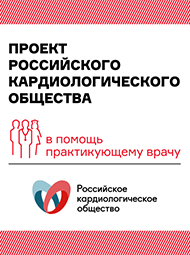Six updates in familial hypercholesterolemia
Familial hypercholesterolemia presents unique challenges in its resistance to many of the common early interventions for LDL reduction, such as diet and lifestyle changes. In 2015, a number of studies have revealed trends in familial hypercholesterolemia screening, FDA approvals of two new PCSK9 inhibitors, and a possible cardioprotective genetic variant found in this condition. The following are six recent updates in familial hypercholesterolemia.
1. Diagnostic tools for familial hypercholesterolemia are underused in many U.S. lipid clinics.
In a study of 876 adults with familial hypercholesterolemia enrolled in the CASCADE FH registry, researchers found that the majority of the 11 lipid clinics evaluated did not use any of the existing diagnostic tools for detecting FH. Read more
2. Universal screening has been increasingly used to detect familial hypercholesterolemia in children.
In a study presented at the 2015 National Lipid Association Scientific Sessions, researchers reported that universal screening of pediatric patients for familial hypercholesterolemia has increased in recent years, and has enabled greater diagnosis of children not identified through a selective screening process. Read more
3. FDA approves alirocumab, a PCSK9 inhibitor, to treat patients with familial heterozygous hypercholesterolemia.
So far, 2015 has generated a great deal of excitement and promise for PCSK9 inhibitors, which block a protein that decreases the number of receptors on the liver that eliminate LDL from the blood. In July 2015, the FDA approved alirocumab (Praluent, Sanofi/Regeneron) for patients with heterozygous familial hypercholesterolemia. Read more
4. Evolocumab receives FDA approval as a treatment for patients with heterozygous familial hypercholesterolemia.
In August 2015, the FDA approved evolocumab (Repatha, Amgen), another PCSK9 inhibitor, for use in conjunction with diet and maximally tolerated statin therapy in patients with heterozygous familial hypercholesterolemia. Read more
5. A genetic variant in familial hypercholesterolemia may be protective against coronary events, but increase diabetes risk.
A study presented at the 2015 National Lipid Association Scientific Sessions reported that a PCSK9 loss-of-function genetic variant decreased the risk of coronary events, but increased the likelihood of diabetes and prediabetes in patients with familial hypercholesterolemia. Read more
6. Type 2 diabetes may be lower in individuals with familial hypercholesterolemia vs. unaffected relatives.
In a March 2015 cross-sectional study of individuals participating in a national Dutch screening program, researchers reported that patients with familial hypercholesterolemia appear to have a lower prevalence of type 2 diabetes than their relatives who do not have the condition. Read more
Source: www.healio.com






